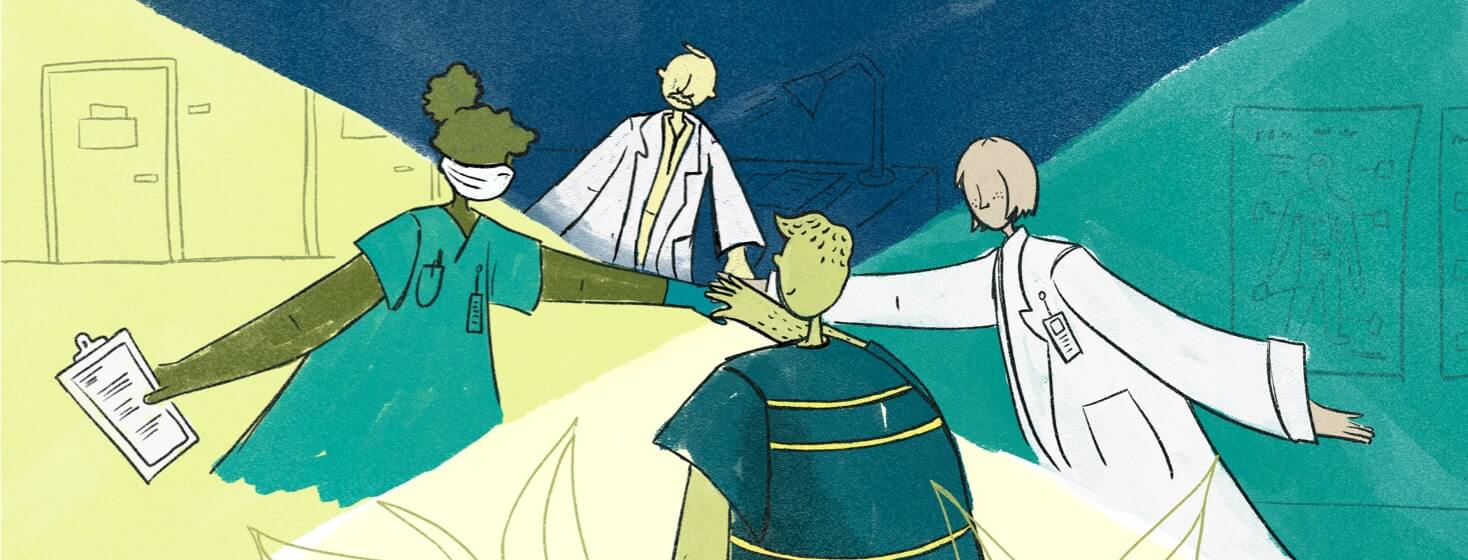Pre-Surgical Anxiety and What To Do
Having surgery is a part of life. Especially if you have a chronic illness. For example, as a CF patient, I have had many procedures. Each one was for a specific reason and each one made me nervous. Surgeries can be scary for many people. One feeling that I have a lot before surgery is anxiety.
What is anxiety? Anxiety is feeling worried or uneasy about a certain event.6 Feeling anxious can look like many things. For example, two signs of feeling anxious is having trouble sleeping or being restless.1 When we feel anxious, it is is our body's alarm system telling us that something is a threat.2
Feelings of anxiety
It is normal to have feelings of anxiety before surgery.3 Having surgery can create feelings of anxiety because there is a fear of the unknown.4 There are so many questions when you have surgery. For example, how is it going to go? And will recovery be okay? Even if the surgery will help you, it is normal to feel anxious.
When someone is having anxiety it is important to talk about it. Why is it important? Because you want to make sure that those anxieties don’t overwhelm you.
Coping with surgery anxiety
Coping with anxiety before a surgery can sometimes feel like a lot. But it isn’t impossible. Southwest Surgery, located in Banbury Australia, has eight tips to help overcome pre-surgical anxiety.5 And I’m going to share them with you today!
- Learn more about your surgery. Having knowledge about your surgery can help you feel better about it. Pay attention to your doctor and nurse. And ask questions if you don't understand.
- Avoid smoking as a response to stress and anxiety. When people are nervous, it is normal for them to have certain ways to cope. But some ways people cope aren't helpful before surgery. For example, smoking is common way to cope with stress, but it can effect surgery and healing time.
- Discuss your fears with your doctor. Talk with your doctor about your fears. They will be able to help you. By talking with them, you will build trust. And building trust can help with anxiety.
- Focus on pre-surgical instructions. Another way to reduce your anxiety is to make sure you're prepared. You cannot control surgery, but you can control how you prepare. For example, follow all of the doctor's orders. This may look like changing what you eat and drink or how you take your medicine. Additionally, make sure you are ready. Make sure your bag is packed, you have a ride to and from the hospital, and you have all of your medicine.
- Get support from family and friends. Support comes in many shapes and sizes. For some people, that support may look like family. For others, it may be friends or having a support group. And for others it may look like having an Emotional Support Animal. Your support system can help you as you deal with feelings about surgery.
- Have a post-operative plan in place. Knowing what will happen after surgery can help. Talk to your doctor about what to expect after surgery. Additionally, have a plan in place for when you go home. This can look like many different things. For example, when my husband had heart surgery we had a meal train. For two weeks, we didn't have to make dinner because our friends brought us dinner. Speak with your family and friends about a plan so every one is on the same page.
- Consider therapy. Having surgery is stressful. Dealing with the side effects of stress is important. And sometimes you may need a professional to help you. Seeing a therapist is a healthy way to cope with anxiety from surgery. Additionally, you can see them before and after your surgery to help with anxiety.
- Seek different therapies for anxiety. There is not a “perfect” way to deal with anxiety. The best way to deal with anxiety is to find a way that works best for you. There is more than one way to help you cope with anxiety. For example, different kinds of therapy include yoga, meditation, and acupuncture.
Even if surgery will help you, you can still have anxiety. And anxiety can be overwhelming. If you are having anxious feelings about an upcoming surgery, tell your medical team and tell your support system.
Having the right support can make a make a good impact on your life. And while this may be a "routine procedure" for the doctor, it isn't for you. Your thoughts and feelings matter and deserve attention.

Join the conversation